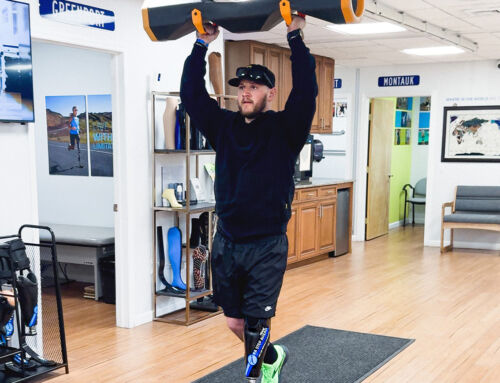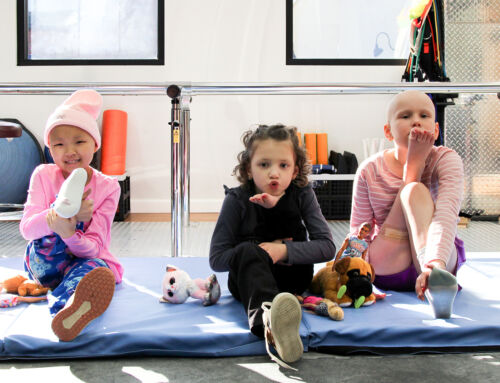As summer vacation comes to an end, your child will be feeling a cluster of emotions – they will be excited to see their friends, but apprehensive about what the school year will bring. If your child is an amputee, more questions and concerns can arise while you begin preparing for the school year. Likewise, if your child is a recent amputee, returning to school will be even more difficult from what you and your child are accustomed to.
It is imperative that you sit down with your child and ask questions about their emotional and physical state. Are they physically ready to go back to school? Are they emotionally ready to see their classmates? Are they comfortable with their body image? Questions like these need to be addressed before their first day of school.
Once your child is comfortable, confident and enthusiastic about returning to school, it will be time to schedule a meeting to speak with the school’s advisor and counselor to go over your child’s new accommodations and needs.
A few points to consider reviewing with the school’s staff are as followed:
-
Amputation history: Inform them how and why your child underwent an amputation, how they are coping, and what steps you are taking with your child’s support team and prosthetist to continue their recovery process.
-
Transitioning: Discuss how the school advisors will welcome your son or daughter while transitioning them with their classmates. How will the teacher maintain control of the classroom when questions arise from other students? Will there be a school counselor available for your child? Does your son/daughter’s teacher have a plan in place to introduce them to the class in a positive and beneficial manner?
-
Medical care: Is the school’s nurse experienced with child amputees? Will they be able to help alleviate pain if your child is feeling discomfort during the day?
-
Assistance: Does the school have an aide who can carry their books to and from class? Are there other routes throughout the school that are more accessible for children with a prosthesis? During bad weather, is there a safe location where your child can be picked up? If taking a school bus, will there be someone to help them get to the bus securely?





I Agree completely with your advice regarding kids that have limb loss return back to school.. Especially after a recent amputation. I had to start 8th grade with no hair, eye brows or eyelashes after chemo… I worse a big leather & & iron brace that was attached to a very “uncool” Orthopeadic shoes, was about 75 lbs. soaking wet & used a wheel chair because walking was too painful… They assigned this crazy, immature, wild, red headed, Scottish kid to carry my books & get me to each of my Class es…. & in general help me through out the day. His name was Chris Walsh & Honestly drove me nuts…. Needless to say we have became very close & dear friends since we were 12…..it will be 40 years this March… He taught me to laugh again & not be so scared & I thought him not all people are the same…. In so, so many ways & it doesn’t make us “Who” we are… I’m STILL ME… ALWAYS HAVE BEEN… Being an amputee doesn’t “Define” me as a Person!… It’s just a part of my daily life & that I’m Still the Me I have Always Been….. I haven’t changed… Maybe the way I look, the way I walk, the scars I have & the way I need to do certainly things in my daily life have changed but eventually it became second nature to me… As Clint Eastwood would say… YOU ADAPT & OVER COME….. With a lot of help from your friends, family, doctors, school faculty, teachers & all your other health professionals…. It’s Just SO Much Easier when Everyone is on the same page… & If they need a little educating into the world of limb loss, So Be It!!!…. Extra Knowledge NEVER Hurted Anyone!! Kids Especially Deserve The Most Encouragement & Support than anyone… Do your home work… It’s true… I ‘ve been there…. Good luck to all you guys starting school!!.. Hang Tough.. It’s going to be okay.